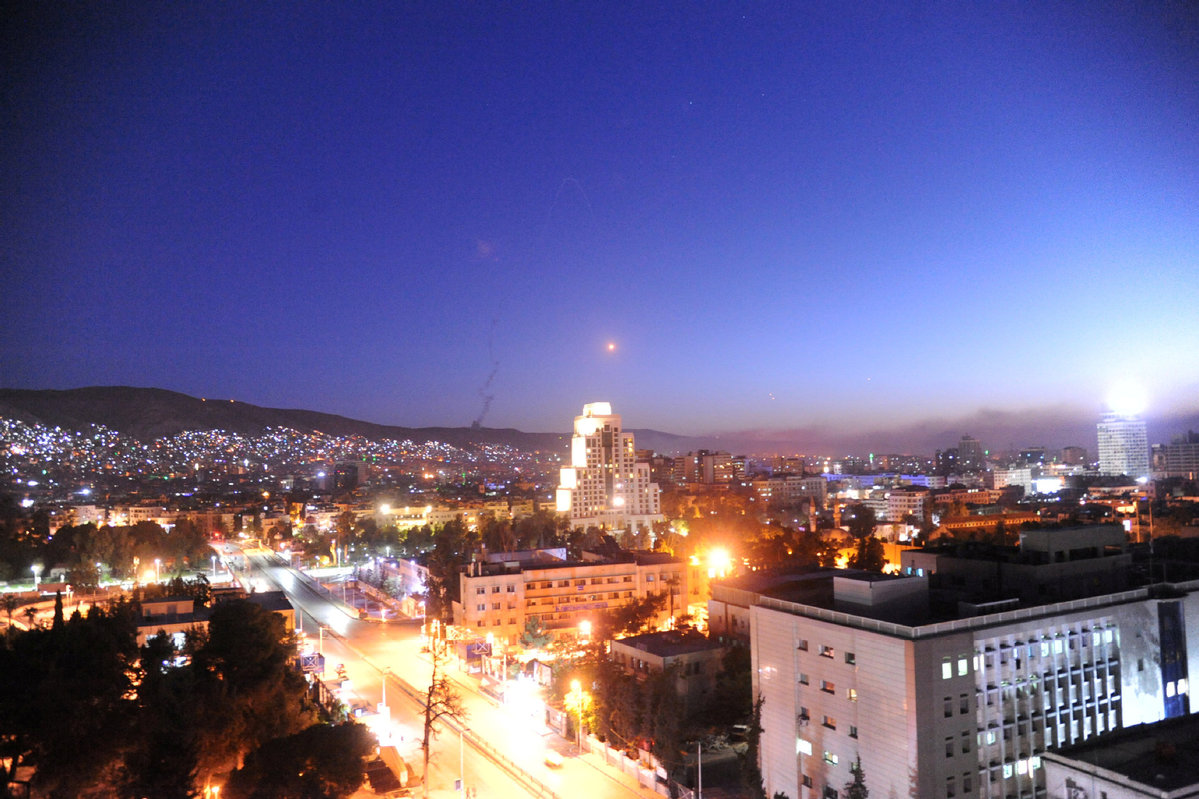Experts weigh in on airstrikes against Syria

On Friday night local time, United States President Donald Trump ordered precision strikes against Syria, in collaboration with the UK and France. Partly as a response, Russian Ambassador to the US Anatoly Antonov said Russia warned strike actions in Syria would not be left without consequences.

What consequences will the airstrike cast upon the Middle East? Will it affect the US-Russian relationship? Two experts shared their views with China Daily's Zhang Zhouxiang:
Zhao Guangcheng, a researcher at the Institute of Middle Eastern Studies, Northwestern University
The airstrike is the result of escalating conflict between two military powers, namely the US and Russia. Now, with US agents losing in the battlefield, the country has finally decided to take direct military actions.
Analyzing from the US side, the Trump administration hopes to make achievements in diplomacy so as to support Trump's image among domestic voters as well as gain advantages for the Republicans in the coming midterm election. That's why the US has taken rather strong measures in almost everything related with Russia — from the case of a former Russian spy being poisoned to the Syrian crisis, the US acted in quite a strong manner.
However, by doing so, the Trump administration has victimized the Syrian people. Seven years ago, it was the Arab Spring, supported by the US, that dragged Syria into war. Today, it is still the US trying to prolong their nightmare.
Therefore, it is too early to predict the tendencies of the situations in Syria, but one thing is certain. The Syrian people will suffer longer because of this decision by the US.
Wang Jinglie, a researcher on Middle Eastern studies at the Chinese Academy of Social Sciences
A successful businessman, Trump hopes to maximize US interests by declaring the airstrike. And contrary to its claim, US interests in the Middle East lie in chaos instead of order, because only a chaotic Middle East could offer enough excuses for the US to intervene.
It is US strategy and the country's competition with Russia that complicated the Syrian crisis. For the past several years, the US made at least two mistakes in the Middle East. First, it failed to play a dominant role in the campaign against the Islamic State. Second, it offended its own Arab allies by recognizing Jerusalem as the capital of Israel.
In contrast, Russia successfully increased its influence in the region by actively coordinating with local powers such as Iran and Turkey. It is fair to say Russia is on the gaining side in the Middle East and its affairs.
That's why the Trump administration decided to launch airstrikes on Syria — it hopes to "frighten" Russia back by taking eye-to-eye action. But that strategy will hardly prove effective because Russia is quite united and determined to defend its interests in the Middle East.
Especially, as the US and Europe have been trying to "contain" Russia with the recent diplomatic crisis, Russia is determined to break it in the Middle East. Therefore there is hardly any possibility of Russia stepping back.
Of course, there is little possibility of any major US-Russia conflict, either, because the two powers cannot afford to do so in a globalized world.


































